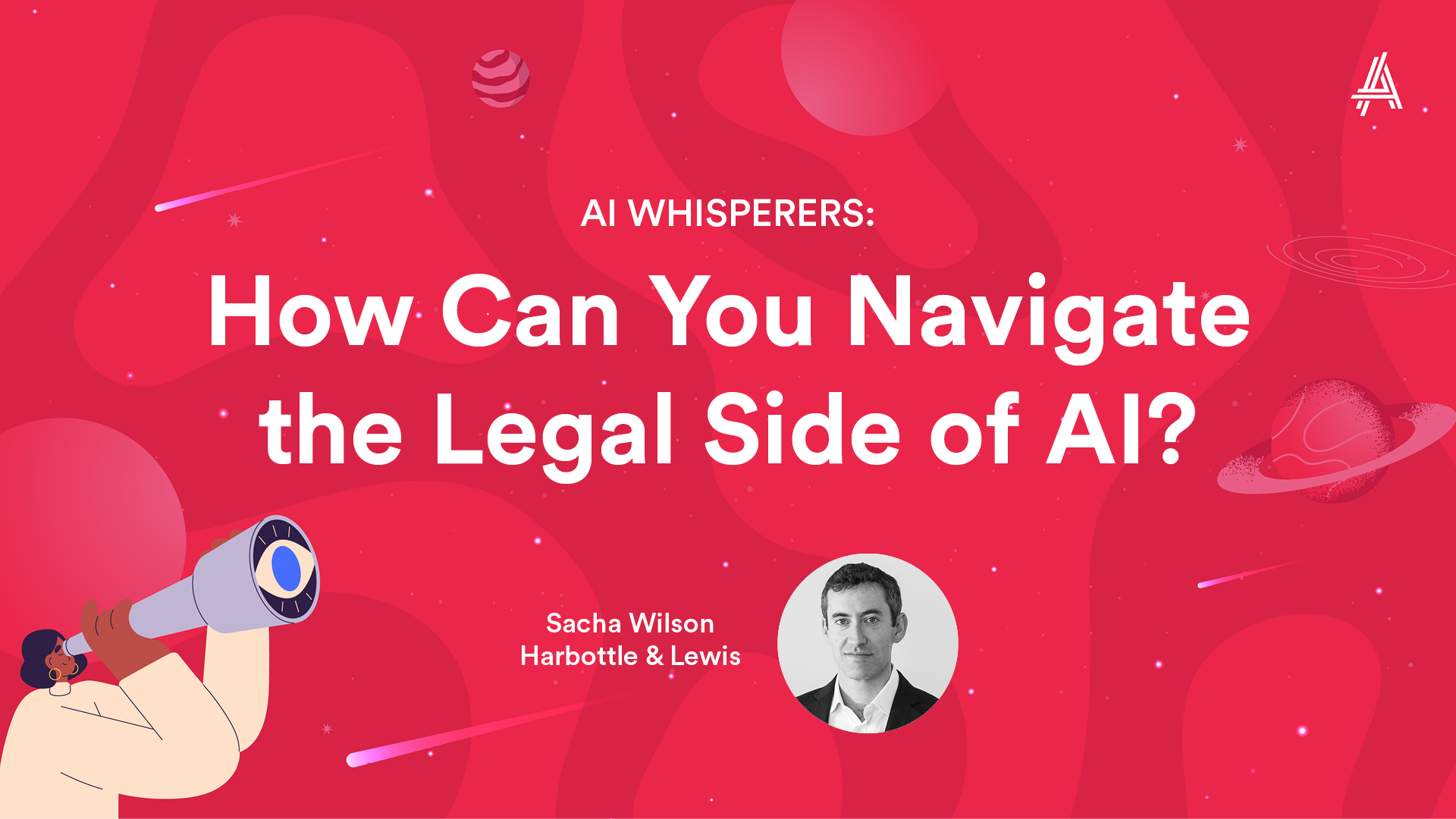
It’s all about working smarter, not harder. That’s the appeal when it comes to all the AI advancements we’ve been able to access so far.
But what about when you drill down into the legality of it all?
“One of the things we’ve been doing a lot of recently, unsurprisingly, is advising agencies and brands on the issues associated with using generative AI,” says Sacha Wilson, partner at Harbottle & Lewis.
“We have this constant debate about who owns the stuff that’s produced by Midjourney, or Runway, or whatever tool it is you’re using. A lot of people don’t know that there are some differences between English law and US law around stuff that’s generated by these tools.”
This is just the start. As things like IP don’t cover AI – and the law simply being unable to keep up with the speed at which AI has been advancing – it’s a difficult beast to tame.
In this month’s AI Whisperers, we’ll be chatting to Sacha about the legal side of AI, including:
- How to approach clear communication around AI with clients.
- Why legal training and awareness is important, and how to approach educating your team on the potential legal pitfalls and best practices.
- The clauses that should go into your legal documents. “What needs to go in the contract? Is the client concerned about the agency using AI? There are a lot of intellectual property implications,” says Sacha.
- How to address privacy concerns, safeguarding client data and staying compliant with data protection regulations.
Join us for a deep dive into the legal landscape of AI, and how to approach what is quite the minefield in today’s modern world. Make sure to come along with questions!
